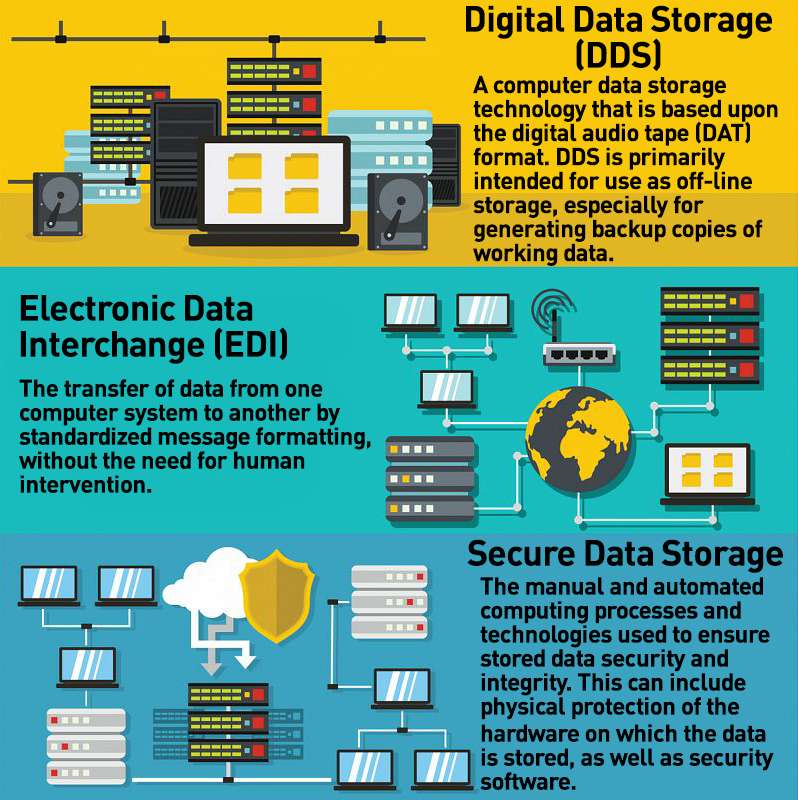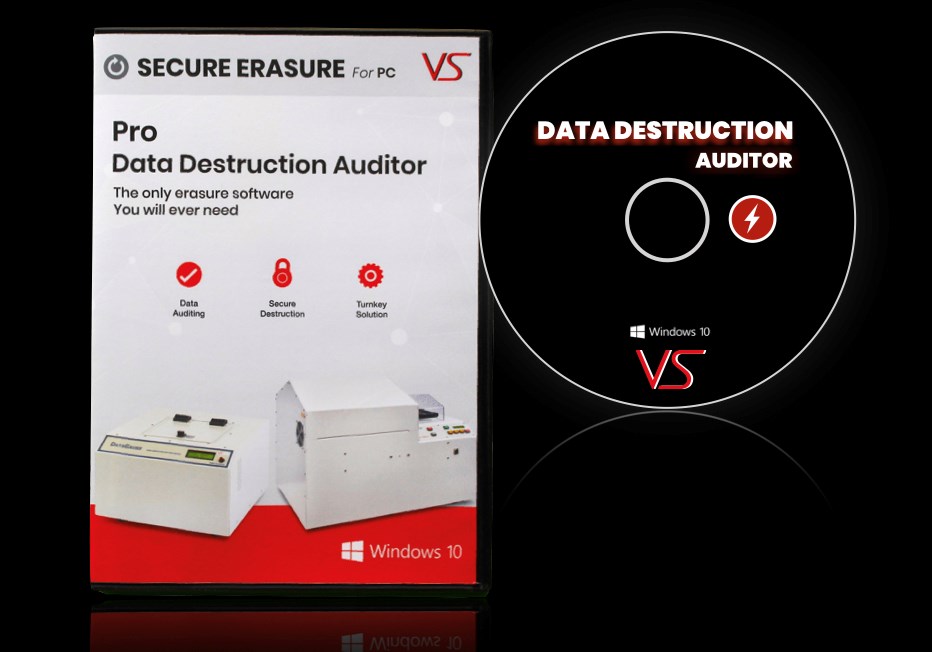The Influence of Effective Data Destruction on Cyber Security Danger Management
The Influence of Effective Data Destruction on Cyber Security Danger Management
Blog Article
The Crucial Nature of Information Devastation in Upholding Computer Safety Services and Protecting Against Unauthorized Accessibility
In an age where information breaches and identification burglary are progressively common, the relevance of reliable data destruction can not be overemphasized. Numerous approaches, from data cleaning to physical devastation, serve as critical safeguards versus unauthorized access.
Significance of Information Destruction
In a significantly digital globe, the significance of data damage can not be overstated. As organizations amass vast amounts of sensitive details, the potential repercussions of failing to correctly dispose and manage of that information become progressively serious. Data violations, identity burglary, and company espionage position significant threats, highlighting the requirement of reliable information devastation techniques.

Additionally, as modern technology develops, so as well do the approaches whereby destructive stars seek to manipulate sensitive info. Organizations should stay cautious and proactive in their data damage methods to safeguard versus these advancing dangers. By focusing on data devastation, firms not just safeguard their properties but also foster depend on among clients and stakeholders, showing a dedication to responsible information management and safety and security methods.
Methods of Effective Data Damage
To make sure the total and irreparable devastation of delicate information, organizations can use a selection of efficient methods customized to their specific needs. One of one of the most common methods is data wiping, which includes making use of specialized software program to overwrite existing information several times, making recuperation basically difficult. This is especially beneficial for tough drives and solid-state drives, where standard removal methods are poor.
Another effective method is degaussing, which makes use of strong electromagnetic fields to disrupt the magnetic domain names on storage media, providing the information irretrievable. This approach is specifically fit for magnetic storage gadgets, such as disk drive and hard drives.
Physical damage is likewise a viable choice, including the shredding, crushing, or incineration of storage space tools. This technique assurances that information can not be recouped, making it optimal for companies taking care of very sensitive information.

Conformity With Data Defense Regulations
Organizations have to not only concentrate on efficient information devastation techniques however likewise make sure compliance with data defense laws that control how delicate information is handled and dealt with. Abiding by these policies is important for keeping and guarding individual data customer trust. Laws such as the General Information Protection Policy (GDPR) in the European Union and the Medical Insurance Mobility and Liability Act (HIPAA) in the USA enforce strict try this site standards on information administration, which include requirements for the safe and secure disposal of sensitive info.
To accomplish conformity, organizations have to carry out detailed information devastation plans that straighten with these legal structures. This includes determining data that requires destruction, establishing procedures for safe and secure methodsâEUR" such as shredding physical media or using software program that meets sector requirements for data wipingâEUR" and maintaining detailed documents of devastation tasks. Normal audits ought to be performed to ensure adherence to discover here these plans and to identify any potential locations for renovation.
Failing to abide by information defense regulations can lead to substantial lawful implications, consisting of substantial penalties and damages to a company's online reputation. Integrating compliance into data destruction practices is not only a lawful obligation however likewise a crucial component of a durable info safety and security approach.
Repercussions of Poor Data Handling
Poor data handling can bring about severe effects that expand past immediate functional obstacles. Organizations may encounter considerable financial losses as a result of data violations, which commonly lead to costly removal efforts, legal costs, and regulatory penalties. These monetary ramifications can stress resources and impede growth, eventually impacting a company's profits.
In addition, poor information handling can severely damage an organization's track record. Companions, customers, and stakeholders might shed rely on an entity that stops working to secure sensitive information, leading to lowered consumer loyalty and prospective loss of company chances. This erosion of depend on can take years to reconstruct, if it can be brought back whatsoever.
Furthermore, companies can face legal ramifications developing from non-compliance with information protection guidelines. Such violations might cause fines and investigations, compounding the economic worry and additional tarnishing the organization's image.
In the world of cybersecurity, poor data management practices can create vulnerabilities that make systems much more at risk to unauthorized gain access to and cyberattacks. Ultimately, these repercussions emphasize the critical value of executing robust information dealing with procedures to secure sensitive information and keep organizational stability.
Finest Practices for Secure Data Disposal


Firstly, data should be categorized according to its sensitivity. Sensitive info needs extra rigorous disposal techniques, such as shredding physical files and utilizing advanced software for digital information wiping. Using qualified information damage solutions makes sure conformity with sector policies and criteria.
Secondly, organizations must carry out an information disposal browse around here plan that mandates regular audits. This policy must describe the treatments for information retention and destruction, making sure that out-of-date data is taken care of without delay and safely. Educating staff members on these procedures is necessary to cultivating a society of safety awareness.
Last but not least, keeping detailed documents of disposed information enhances liability and offers a clear audit route. This documentation ought to consist of the sort of information destroyed, the approach used, and the day of disposal.
Verdict
Taking on durable approaches such as information wiping, degaussing, and physical damage, along with conformity with guidelines like GDPR and HIPAA, is important for protecting delicate information. Ignoring appropriate information disposal techniques can lead to extreme effects, including data violations and legal effects.
In a period where data violations and identification burglary are increasingly prevalent, the value of effective information devastation can not be overstated. data destruction. Information violations, identity burglary, and corporate espionage position considerable risks, emphasizing the requirement of efficient data devastation techniques
Compliance with policies such as GDPR and HIPAA mandates that organizations carry out stringent information defense measures, including the safe devastation of information at the end of its lifecycle.
By prioritizing data damage, firms not only secure their possessions however additionally foster count on amongst customers and stakeholders, showing a dedication to liable data management and safety and security practices.
Organizations need to not just concentrate on efficient information damage methods but additionally guarantee conformity with information security policies that control just how sensitive information is managed and disposed of.
Report this page